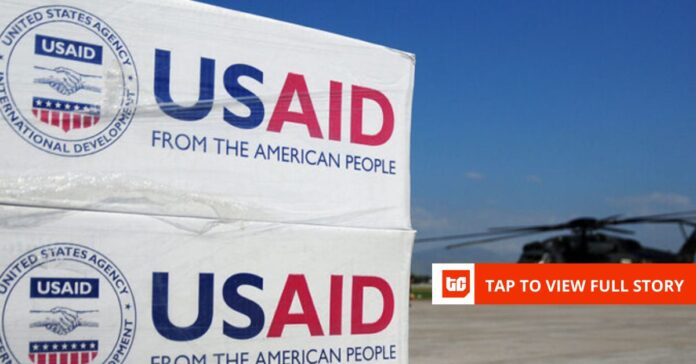What’s next for Africa’s healthcare and healthtech industries now that USAID is gone? Africa’s healthcare system is at a turning point. In the last decade, healthtech has evolved from a fledgling concept to a lifeline that millions rely on. It powers telemedicine in rural areas, digitalises supply chains for life-saving drugs, enables data-driven strategies for public health, and is a driving force behind telemedicine. The abrupt suspension of USAID funded programs, such as the President’s Emergency Plan for AIDS Relief Program (PEPFAR), threatens to undermine this fragile progress. What’s at stake and how can we pivot our efforts?
USAID’s silent backbone in Africa’s healthcare ecosystem
USAID was more than a funder. It was a catalyst. Its investments went beyond dollars; they built bridges between government, NGOs and innovators such as Remedial Health Solutions (19459033) USAID’s technical support and logistical assistance helped Nigeria’s National Malaria Eradication Programto significantly reduce malaria mortality rates over a 10-year period. Maisha Meds (19459033), a leading healthtech start-up in Africa, has received $5.25m in scale-up stage 3 funding from USAID Development Innovation Ventures (DIV). This money will be used to expand the mobile software platform of Maisha Meds and provide affordable malaria treatment across Africa.
In Kenya Rwanda and Mozambique USAID-backed platforms such as OpenMRShave revolutionised HIV/AIDS monitoring. USAID-funded programmes reduced the “loss of follow-up” for patients in PEPFAR, which was as high at 22.4% in Ethiopia.
The exit of USAID is not just a budget item. It’s a seismic shift for systems that depended on their expertise to optimise the last-mile delivery, to train frontline workers and to scale digital tools.
This could mean that healthtech startups have fewer opportunities to work with public health programs in order to integrate their solutions into the national healthcare strategies. It also means that there will be a loss of trust and credibility, as USAID’s endorsement of innovative solutions was often seen as a stamp or approval of those seeking to gain traction on the market.
Following the exit of USAID, the sector needs to rethink its playbook. Here are my four imperatives to ensure the sector’s survival.
Governments should lead with policies, not platitudes. African leadership must stop treating healthcare like a charity. It’s a matter of economic necessity. Nigeria only allocates 5.18% of the national budget to health. This is less than half of the Abuja Declaration’s pledge of 15%. We need to invest aggressively in digital infrastructure, such as Kenya’s digital healthcare tax levies. These policies streamline the approval process for health tech, allowing faster innovation and reducing dependence on foreign aid. By empowering startups and building resilient, locally-led healthcare systems, they improve access to healthcare, ensure long-term sustainability in Africa, and empower startups.
2. Leveraging regional and local partnerships: To sustain and scale solutions, the private sector, including health technology startups, must explore partnerships. Ghana’s mPharma, for example, is acquiring distressed pharmacy to stabilize drug access. Localised action is better than grand gestures.
3. Diversify Capital: VCs, impact investors and other investors must take USAID’s place. Tools such as revenue-based financing or development impact bonds can help reduce the risk of investing in electronic health records or telemedicine. AfriGadget and other crowdfunding platforms have already proven that this model works.
4. Advocate relentlessly, as silence is complicity. African Union must press global institutions to recommit — but with African-led frames. Why should the Gates Foundation or the EU copy the USAID playbook? Let’s demand cocreation and not consultation theatre.
USAID’s withdraw is a serious blow. But it is also a moment of reckoning. We’ve been outsourcing our healthcare sovereignty for too long. This moment requires audacity. Kenyan startups such as Afya Rekod (19459033]or Zuri Health (19459033]are repurposing AI to forecast drug demand, and South Africa’s Ndlovu Clinic operates entirely on solar-powered electronic health records.
I’m doubling-down on two truths as a builder working in this area: Resilience, Africa’s competitive edge. Mobile money is proof that we’ve surpassed legacy systems in the past. Our moat is community trust. The nurses, pharmacists and patients who use it are the backbone of tech.
Although the road ahead is unknown, the destination is not negotiable: A healthcare system that is run by Africans for Africans. Let’s build this.
______ She combines strategic thinking with user-centricity in her role as Lead Product Manager at Remedial Health Solutions. She is passionate about mentoring and has helped more than 50 individuals transition into technology. She has also driven growth in Africa’s Tech Ecosystem through collaboration and continual learning.


